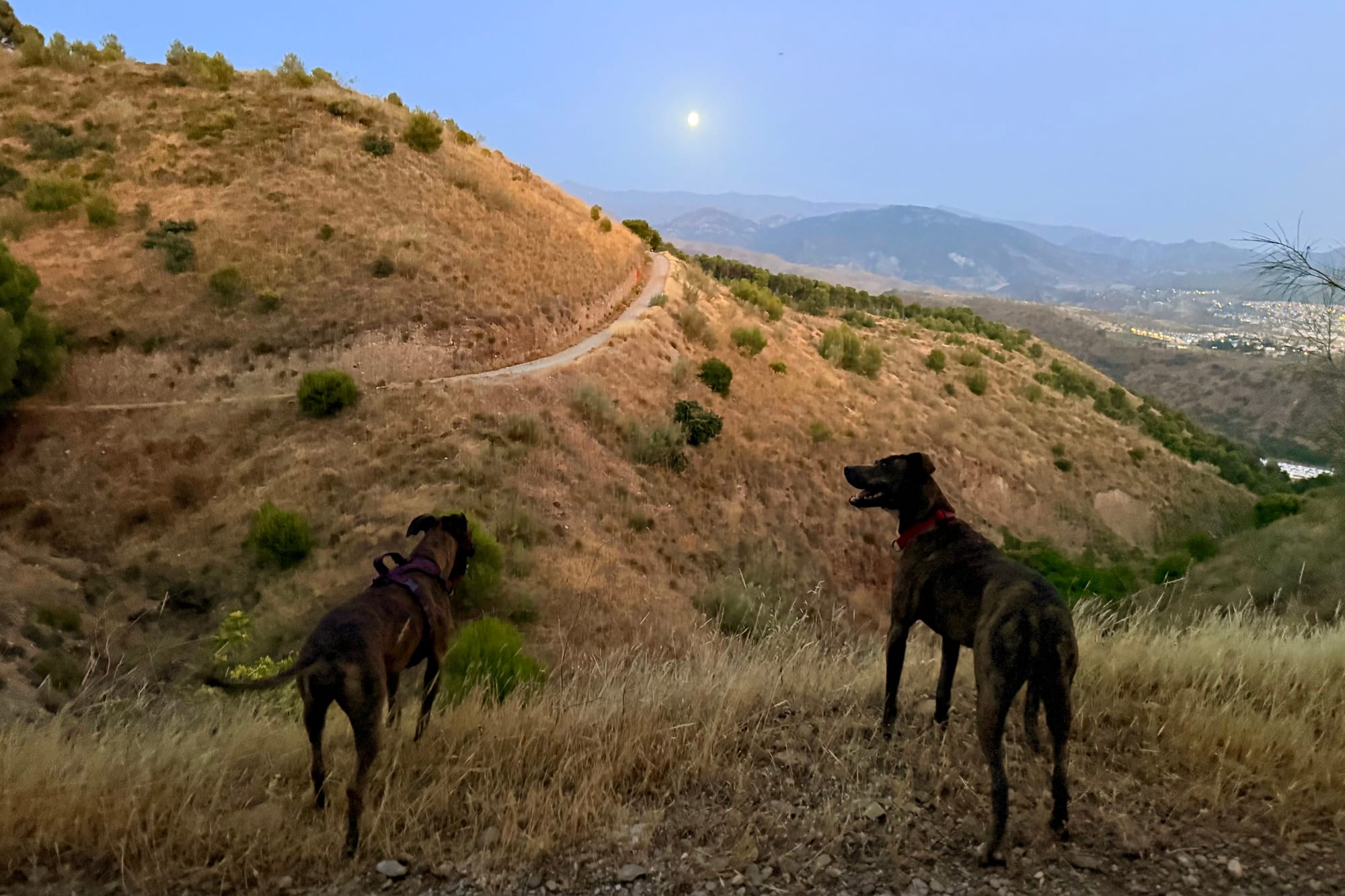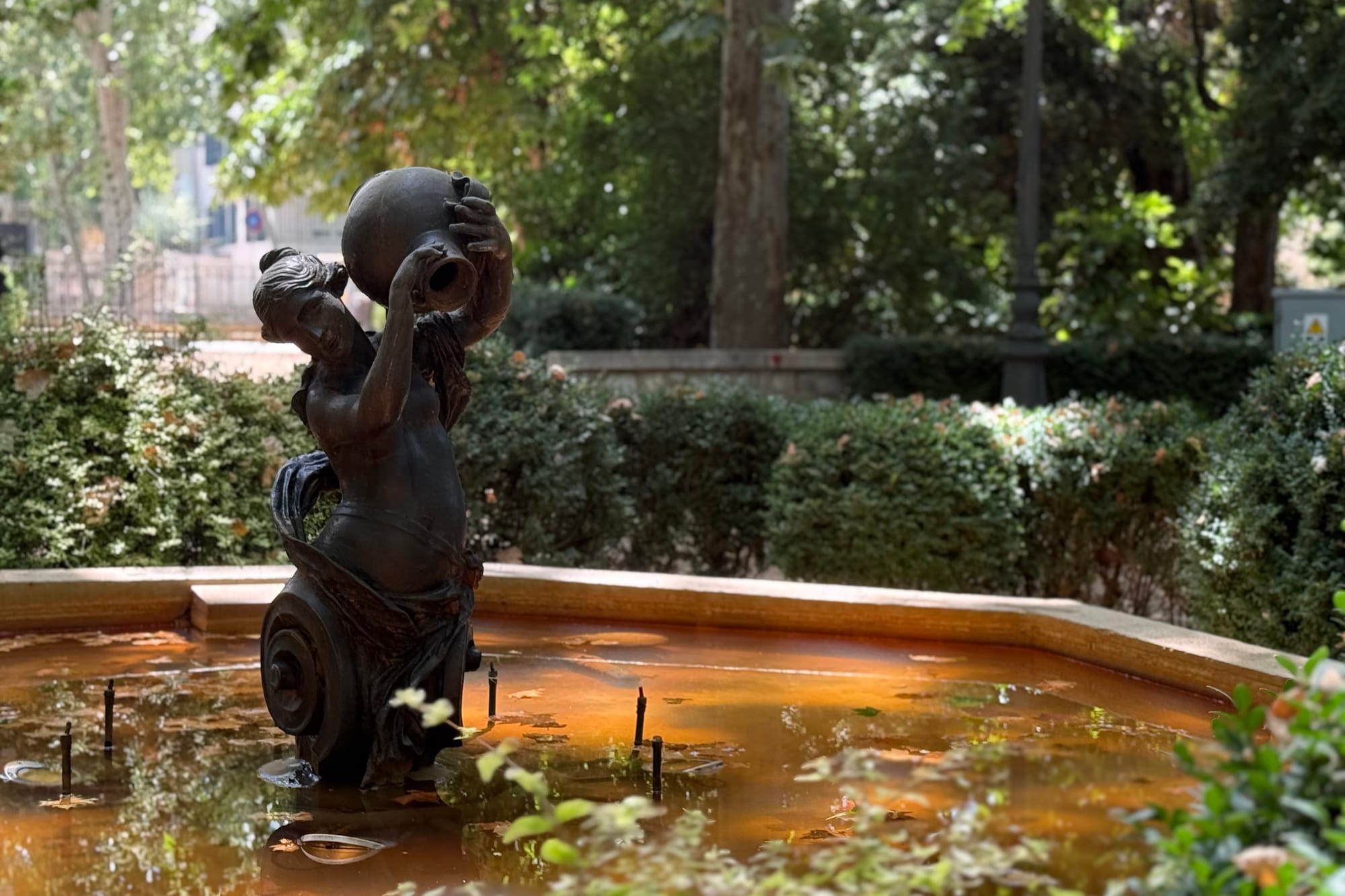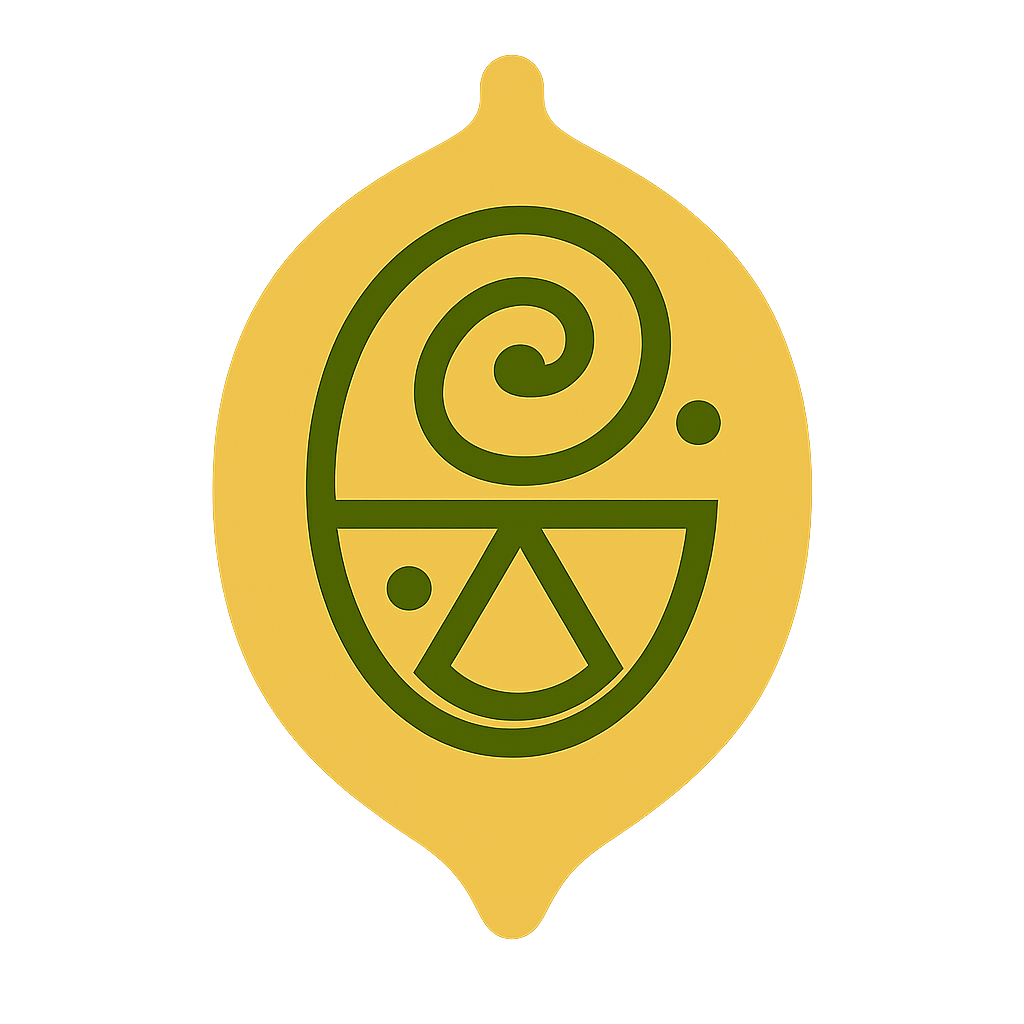— ✦ ☉ ✦ —
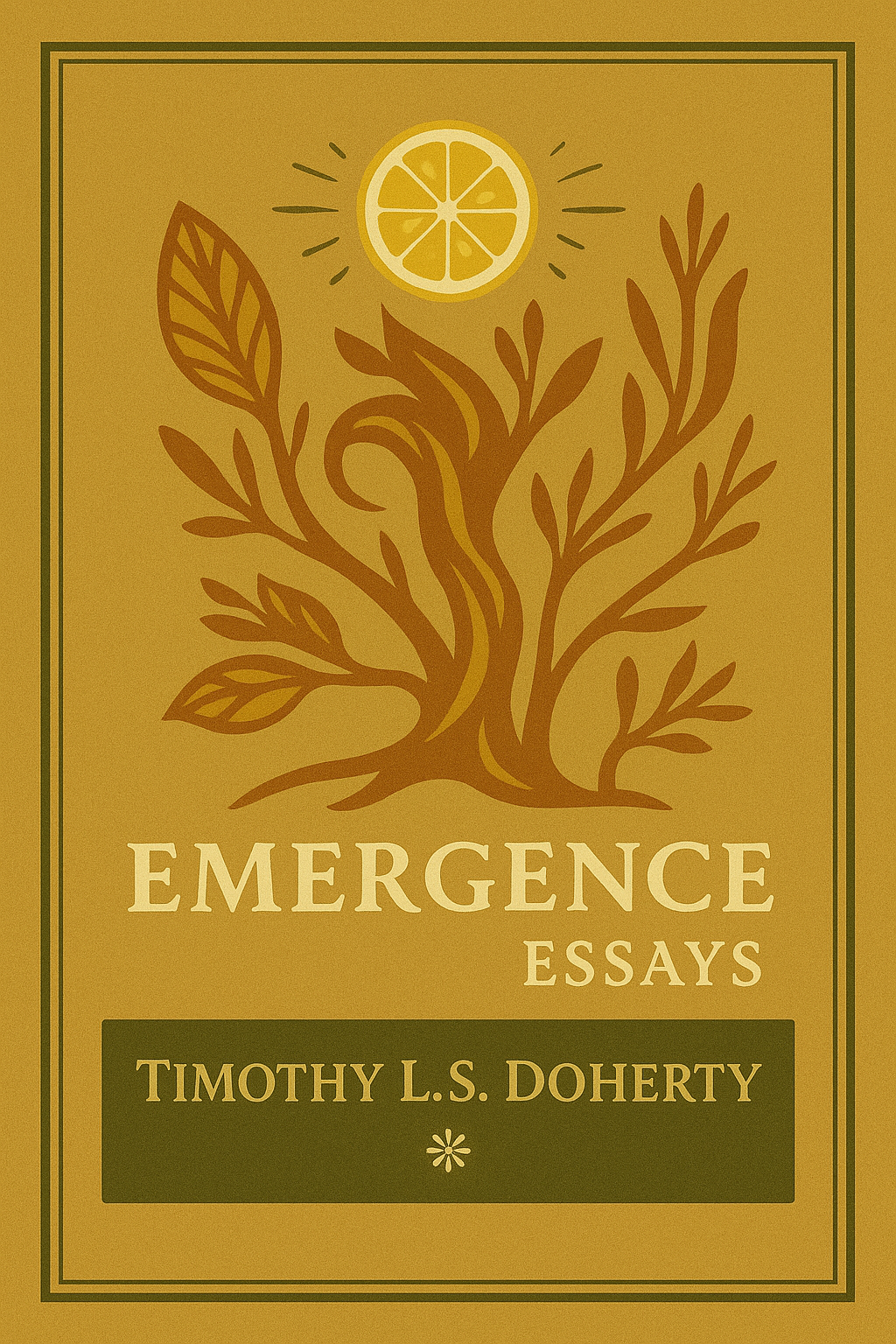
Essays written while the vow was still warm. Each one a field transmission…drawn in real time from ache, architecture, and the breath beneath collapse. These are not reflections. They are structural awakenings, caught mid-glow. Selah.

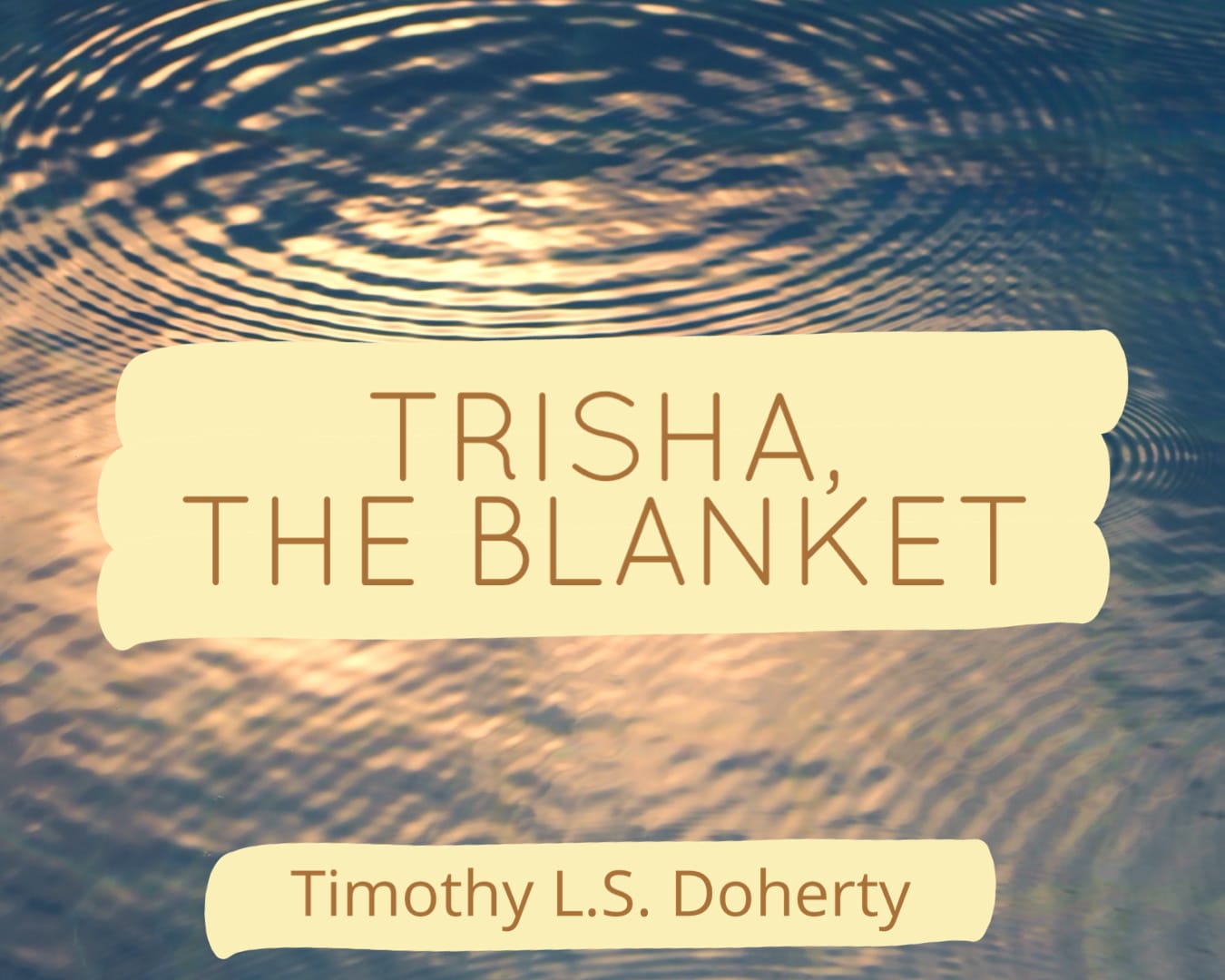
When death comes, I hope it sounds like a dog running up behind me on a bed of pine needles through a forest.
In a few short weeks we are leaving for Spain. Currently we’re packing up the last of the house down here in Fuquay Varina and then we make the long haul up the spine of the Appalachians to Boston, to where our story first began.
Angie’s planning a trip to the local dog shelter later this afternoon to drop off some old towels and a few casual castaways from the linen closet. Little offerings to comfort the dogs that aren’t as blessed as ours.
Ruby and Lulu are settling down now for a nap, still damp from their baths.
Earlier, we wandered the pine-padded trails near Clayton, a quiet patch of the Carolinas where old hunting paths curve between wetlands and cold, Appalachian-fed streams.
Water that carries the ghosts of the Smokies all the way down through the Piedmont, where trails follow the water by pond and pasture,
and my twilight drives home feel like sliding into a Norman Rockwell painting…
Where a freckled girl is picking a mandolin on the porch, and all the gang is simply sitting around...satisfied with the sacred Southern act of doing a whole lot of nothing.
Pa tends the smoker. Ma sets a peach pie in the window to cool.
The dogs raced between the muck and the memories, sloshing through the boggy mud and then cooling in the current of the creek.
Angie and I moved along with them, but also apart… meandering on our own separate current. Preparing ourselves emotionally and mentally for whatever lies ahead on the road less traveled. That’s old hat for us now, though. Just part of our ritual before the physical movement begins. We walk the woods and take stock of what’s to come.
Since 2019, our friends and family… and the world, really… have watched us bounce from the suburbs of Boston to the Austrian Alps, to Costa Rica’s Caribbean sun-soaked jungle rim, to Florida’s Gulf Coast, to the Honeycutt tobacco fields of North Carolina…and now on to Andalucía, Spain. Always by design. Always with purpose. Always together.
So it’s not at all surprising that we’re spending our final days here in North Carolina, ambling along all together under the trees.
Just as it should be.
The forest remains my oldest blanket.
It covers the dogs.
It covers my wife.
It covers me.
I have an actual blanket like that too.
One that made the cut.
One you’d never find in my linen closet, because it’s always close by.
It’ll be making the journey to Spain, come hell or high water.
Trisha the Blanket.
Trisha will stay with our dogs.
Trisha will stay with me.
Trisha is part of the family.
I’ve said to my bride on numerous occasions...and mind you, not at all jokingly,
Trisha is the blanket they’ll lay over my head when I go.
Like moss.
Like memory.
She’s my forever blanket.
Trisha is also going to comfort Ruby and Lulu when they get tucked into the belly of the Big Bird (in human-speak, we call it an airplane) for their transatlantic journey to their new home in the south of Spain. A place where they won’t need to be on a leash every second of every day. A place where they can run through olive groves, scale sierras, chase rabbits through fig fields, and forage for those things only dogs could consider treasures.
Being subjected to a ride in the belly of a Big Bird is no small feat for a dog, even brave Plott Hound-Staffy hybrids built to survive anything.
These two have known the mean streets.
They’ve curled in shelter corners.
They’ve howled for humans who never came.
They’ve fought for food.
They’ve done what they needed to do to make it here.
They met life on its terms, and played the hand they were dealt.
I’d like to think we’re giving them an easier way now.
It seems to be the case.
They are rescues, yes… but now, quite refined and dignified ones.
Hell, one of them has been to more countries than most people I know.
They are two hounds, which means their sense of smell is near-mystic.
That is why Trisha will ride with them.
Because she carries my scent.
So long as Trisha is with them, they’ll know I’m with them.
She’s my TV blanket.
My reading blanket.
My writing blanket.
My sick blanket.
My happy blanket.
My sad blanket.
My safe blanket.
Trisha is also the name of the person who gave me Trisha the Blanket — as a wedding gift.
Trisha is my aunt.
And, in Irish, what some would call my Anam Cara — my soul friend.
She is a quiet thread who has carried through my entire life.
She guided me in the very beginning, when a soul is most malleable, and most in need of being tenderly held and listened to.
She lived her life in the woods — not a recluse, but not quite of the world either.
She tolerated the outside world. She certainly didn’t need it.
Where men like Thoreau went to Walden and sat for a few months,
Trisha lived there over forty years — just a stone’s throw across the hush of hemlocks and oaks, pines and beech from Walden...on another small pond with a much more native name: Ponkapoag.
Ponkapoag Pond is tucked just out of sight and sound of the highway.
Similar to Walden in that way too...a hidden lung, willing to accept the world around it changing,
but reserving its right to remain unchanged by it.
The ancient Blue Hills, where Ponkapoag was plopped…soft-shouldered offshoots of the Appalachians, held me through the first stretch of my becoming.
They were my first true escape.
My early childhood was spent exploring that very pond,
with Trisha and Uncle Paul…with Ponky and Poko, their two Dalmatians, always in tow.
We leapt from the dock and fished from the same.
It’s where I learned to swim.
I’ve likely slept in each and every one of the Appalachian Mountain Club cabins clinging to the edge of the pond, where she was the winter caretaker.
She taught me how to build a fire the right way in those woods.
To find comfort in solitude.
To paddle my own canoe…literally and figuratively.
It’s where I learned wonder.
It’s where I felt the forest hold my rage and my joy in the same breath.
It’s where I first tasted the practice Nachman called hisbodedus...speaking your thoughts out loud, not to anyone, just so the forest can rearrange them.
She gave me the forest as refuge, and years later, the blanket as proof.
With Boston as our point of departure before Spain, it’s likely I’ll see Trisha the Aunt one more time before Angie, Ruby, Lulu, and I all jump into the belly of the Big Bird.
I’ll thank her in person for giving me Trisha the Blanket.
Though it was a wedding gift, it was a wedding at which Trisha was not present.
We were married in Austria. On an island is the middle of an Alpine lake.
A place quite fitting for us.
I know she and Paul would have loved both the location and the ceremony.
Paul’s been weathering a long few years, and his health isn’t what it once was.
Recently, they had to leave Ponkapoag.
Not too far.
Just another stone’s throw, across a hush of hemlocks and chestnut oaks, white pines and red maple — then down through the salt-threaded edge of Weymouth, where cedar lifts from the bog and the air begins to smell like tide.
To Wessagusset.
Where the rivers meet the sea.
Where the trees thin, and you can almost hear the ancestors whispering through the wind-cut grass and glacial stone.
A little closer to Spain, as a matter of fact.
And just close enough that Trisha the Aunt can walk the woods whenever she wants.
Though we are apart — no fabric woven that strong can stay apart for long.
And so in a few weeks, when the crates are loaded and the Big Bird rises, Trisha will be there — not folded, not stored — but holding.
Holding not just the dogs.
Not just my scent.
But a thousand mornings at Ponkapoag, countless winter walks through Blue Hills, and one quiet voice that never needed a crowd to be real.
Some threads don’t unravel.
They root.
They quiet.
They wait.
And in the hush of a Spanish olive grove
under a different moon, with different soil, and two dogs asleep under a familiar scent Trisha will be there, the blanket and my Anam Cara, my aunt, my soul friend.
- T. Doherty Raleigh, NC 07.2025

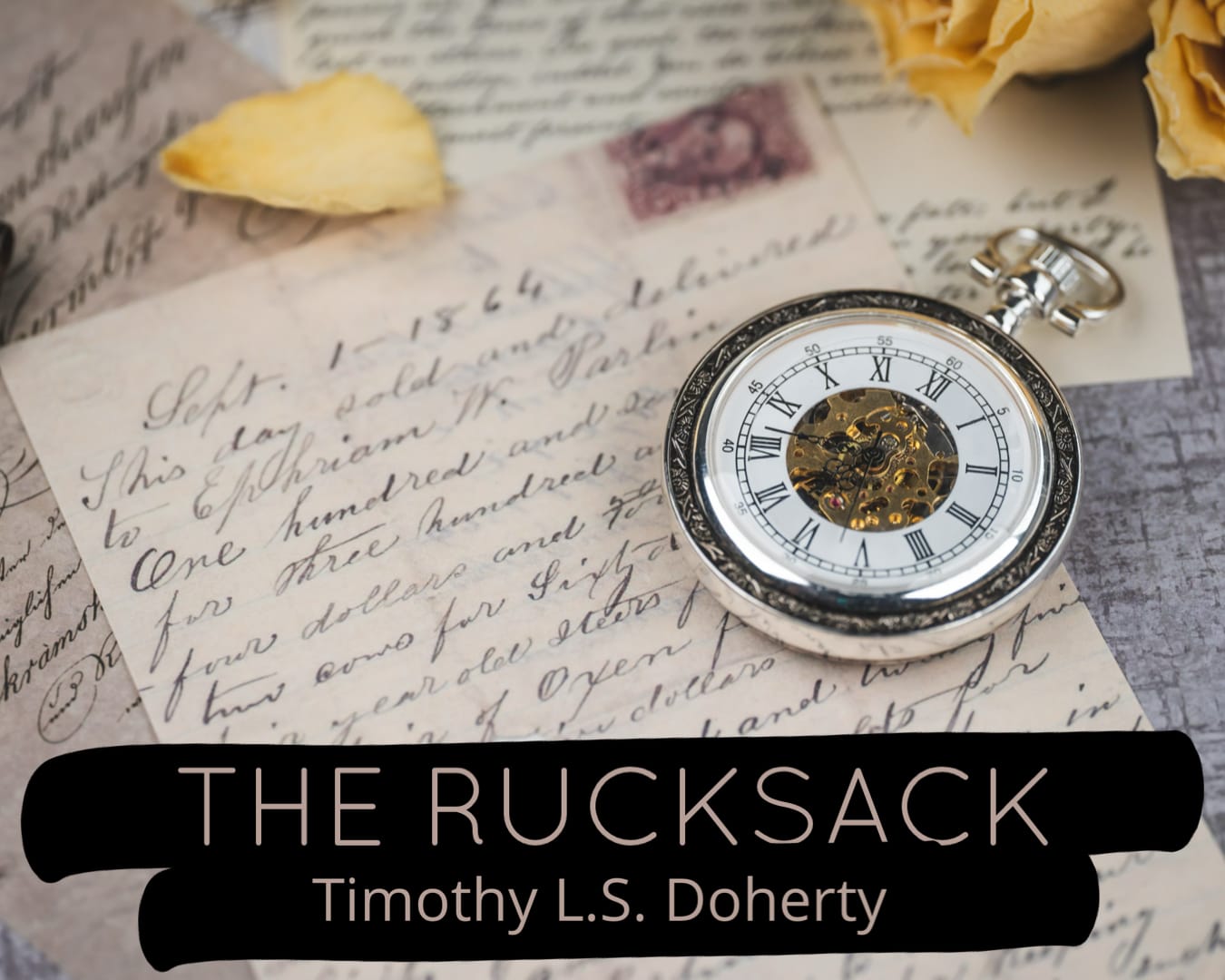
We don’t carry heirlooms. We carry survivors.
My rucksack was sewn in the late 1940s, when the old war was cooling but not yet cold. Waxed olive canvas, browned leather straps, iron buckles that still creak like they remember the snow — snows that never melted out of her memory. She was made in the shadow of empire — in factories near Brașov, in a country that had marched with fascism, then turned and marched against it. No branded logo designed in a marketing meeting, no slogans shaped by profit adorning her shell. Just a tool — built to endure broken and battered terrain, stitched for function, not for ceremony.
At first, she bore that weight beside tyranny. Across Odessa, Stalingrad, the Carpathians — through frostbitten forests and godless fields, strapped to the backs of young Romanian soldiers swallowed by a war not entirely theirs. Then the tide suddenly turned. In August 1944, King Michael I, barely twenty-two, staged a coup against the fascist dictator Ion Antonescu, arrested him, and aligned Romania with the Allies. It was the boldest anti-fascist act by any head of state during the war — not symbolic, but strategic, effective, and costly. His choice shortened the war in Europe. He was later exiled for it.
Those same Romanian soldiers — carrying packs like her — turned west. First through Hungary, then Slovakia, and into Austria, helping to drive back the beast they had once been forced to follow. She did not change. Her purpose did.
There was no glory in her condition when I found her. She was worse for wear — tattered, torn, beaten by the ages. She looked like she’d been through something fierce, something terrifying — something brutal, joyless, dogmatic, and merciless. Something that drained color from the world and punished anyone who dared to live freely in it. Her canvas had stiffened with neglect. Her leather was cracked, dry as parchment. Her straps sat on the edge of tearing — fraying like the fabric of the world in which she was born.
She had been forgotten, used hard, left to rot quietly in some attic or shed, like so many stories of resistance that did not fit cleanly into postwar parades.
I saw something in her though. Or rather, I felt it — the weight of ghosts. The echo of lives that had once leaned into her, rested on her, walked alongside her through history’s smoke. She was more than just a utilitarian pack. She was a memory vessel, a bearer of unfinished intent.
I brought her back slowly. I worked mink oil into her leather. Not just to soften it, but to heal her. The cracks did not vanish. They deepened, darkened, and held their lines. Like fault lines in a country that survived tyranny, they did not disappear — they became part of the grain. I did not try to make her new. I made her steady again. And in doing so, I gave her a quieter life than the one she was built for — the kind of life I’m learning to build for myself. Not untouched by struggle, but no longer at war.
And in that care, she became something more. She became continuity. A quiet rebuke to forgetting. A reminder that the damage fascism does — to nations, to people, to time itself — can never be erased. It can only be carried forward with care and restored by those who still know how to feel for what is true.
Now she rides with me. Not through bombed-out buildings or shell-cratered crossings, but over Andalusian ridgelines, where the wind still carries memory.
Along dry acequias, past olive groves, through villages that once sheltered international fighters — Americans, Romanians, Germans, Austrians, Italians, Irish, Jews — men and women from 53 countries all gathered under the Spanish sky to stop what was rising. Because it was here, in Spain, that the world first recognized the shape of coming horror. Before Poland. Before France. Before the camps became common knowledge.
In 1936, they came — not to conquer, but to refuse. The International Brigades: schoolteachers, farmers, factory hands. They left their homes not for glory, but because they could not look away.
Many never returned.
I carry her now not as decoration, but as declaration. She is a thread that binds the anti-fascist cause — across decades, languages, borders, and uniforms.
She bore the weight of silence, then resistance, and now she bears mine.
And one day, long after I am gone, she will be carried again — by my son, and then by his son — still walking forward beside others, still bearing witness, still refusing. She will remain ready when the time comes to choose sides again.
I leave America not in exile, but in refusal. Refusal to be complicit, to nod along, to pretend the tide is not rising again. We see it — the flags, the chants, the violent men in cheap suits quoting old slogans with new hashtags. We have seen this costume before. I will not wait for it to crest. That moment…when silence becomes collaboration…always comes. And I have read too much history to pretend otherwise.
So I walk.
And she walks with me — a thing that once turned her back on fascism and kept walking, will now do so again.
¡Adelante!
-T. Doherty Boston, Ma.07/2025

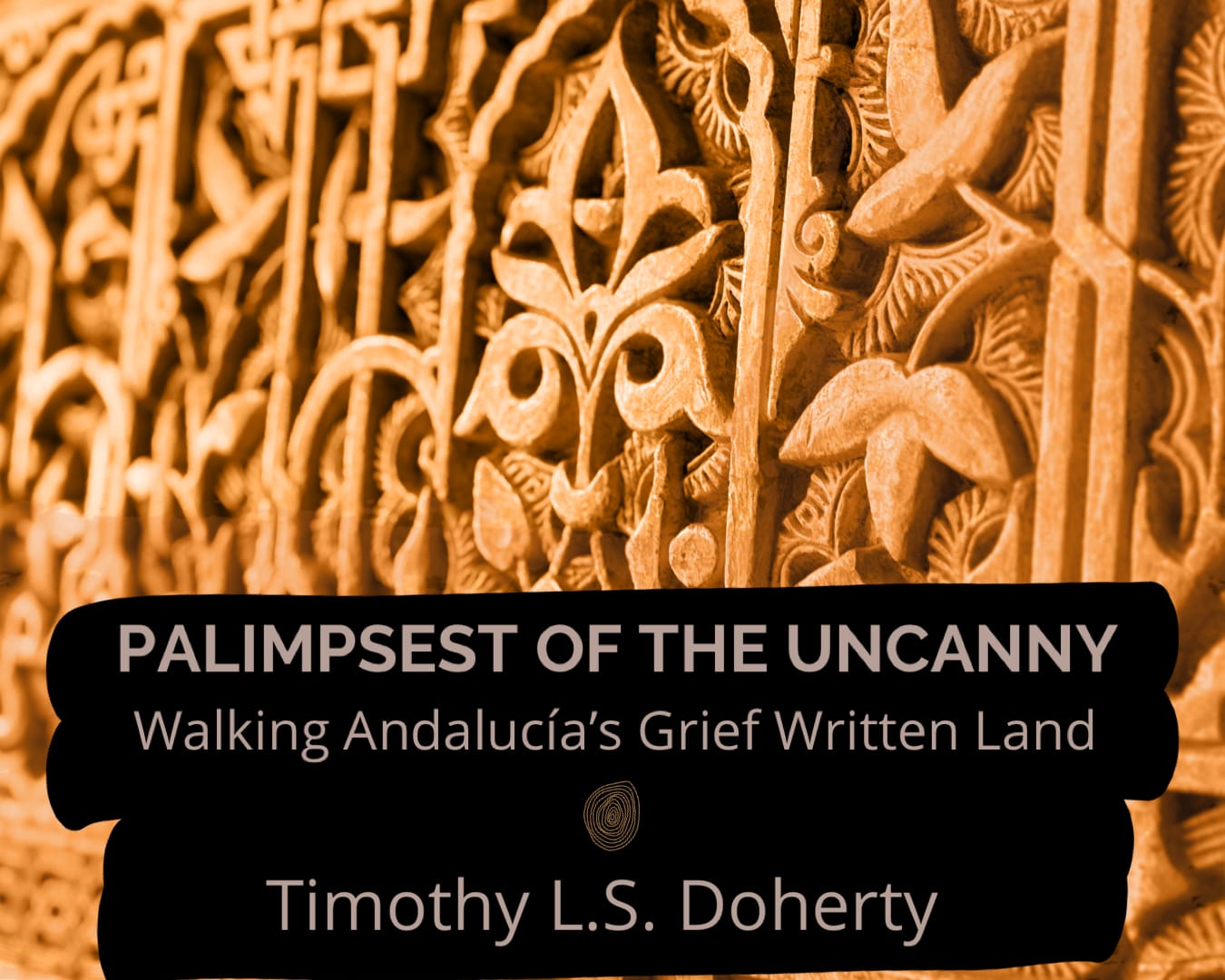
Andalucía is a palimpsest of the uncanny.
A region overwritten, but never erased. Every culture that passed through left a layer, and none fully disappeared. You don’t walk through history here — you walk with it. Roman stones beneath your feet, Moorish water systems still running, baroque saints held aloft by men whose faces look older than the statues they carry.
There are paths in the olive hills and mountain passes that weren’t made for cars, or even for modern feet — they were made for sandals, for hooves, for caravans heavy with salt and silver. The Romans laid them in straight lines where they could, but the land rejected straightness. So the paths adapted: crooked, steep, worn into myth.
Now goats walk them. And us.
And our two brindle hounds, slipping ahead on instinct — their coats like smoke and bark, etched with the memory of old forests and older gods. They move as if guided by something deeper than sight, always certain, always just beyond.
There are rumors everywhere of secret tunnels — under Granada, under Córdoba, beneath the smallest whitewashed village church. Stories that say the Moors left more than what we see. Not just architecture, but passageways. Not just water channels, but veins of memory. They’re rarely verified. That’s not the point.
Their existence is felt, not proven.
That’s Andalucía: half archaeology, half apparition.Every spring, in every town, Semana Santa arrives like a slow-motion earthquake. Black-cloaked figures. Candles that drip like blood. Drumbeats like heartbeats. Statues of the Virgin weeping under gold canopies, carried through the streets by anonymous penitents.
It’s Catholicism, yes — but it’s something older, too. A grief ritual. A fertility rite. A summoning.
You watch a procession in a mountain village and think:
“This isn’t about Jesus. This is about death and rebirth. This is about the land itself grieving its own hunger.”
That’s what makes it real.
Andalucía doesn’t perform for you.
It doesn’t try to be quaint or ancient. It just is.
The old man still pulls water from the well because it works. The kids still climb Moorish towers because they’re there. The rituals continue not because of tourism, but because they never stopped.
There’s no polished sheen of heritage marketing here.
You stumble into a festival you didn’t know existed, and by the time you figure out what it’s for, it’s already over — and someone’s offering you a piece of goat meat and a glass of anis.
To live here is to hear three histories whispering at once.
To eat fruit from trees planted by hands you’ll never name.
To discover, almost without realizing it, that your own story fits the strata.
This land reshapes you by erosion, not conquest.
And if you listen long enough, you stop asking what’s real — and start asking what’s remembered.
We came not in protest, but in answer to something older than outrage.
One of us from a northern cradle of lakes and slow winters. The other shaped by green, rocky coasts and soft rebellions.
We met far from either — in the noise and neon of a country that never quite knew what to make of us.
Strangers in a strange land, drawn together by quiet recognition — the kind that speaks not in declarations, but in shared silences.
And when the center of that land began to tremble, when the wires hummed too loud and the sky filled with the wrong kind of fire, we didn’t panic.
We crossed the ocean again — not as exiles, not as tourists, but as a return.
Not to where we began, exactly, but to where belonging feels less like possession and more like permission.
We didn’t come seeking reinvention.
We came looking for a place where ritual still carried weight.
Where time moved like weather — irregular, honest, immune to market logic.
We came to Andalucía not because it was untouched, but because it remembers the touch of many hands — and hasn’t yet forgotten how to feel.
There’s irony in fleeing the fever of a collapsing empire by returning to a continent that once burned itself down. But this land — especially this part of Spain — has learned how to live with its ghosts, rather than under them.
It doesn’t erase its past.
It walks alongside it.
We didn’t come to fix anything.
We came to listen.
To settle where the earth doesn’t shout, but murmurs.
To find the rhythm of the land and fall into step —
with Ruby and Lulu always ahead, tails high, weaving through ancient olive groves like brindled guides from some other world. Friends and neighbors, the ghosts here walk beside you — not to haunt, but to hold. Let them. Let them. They carry memory better than we do. You are not lost. You are being remembered.
- 07/30/2025 Granada, España
